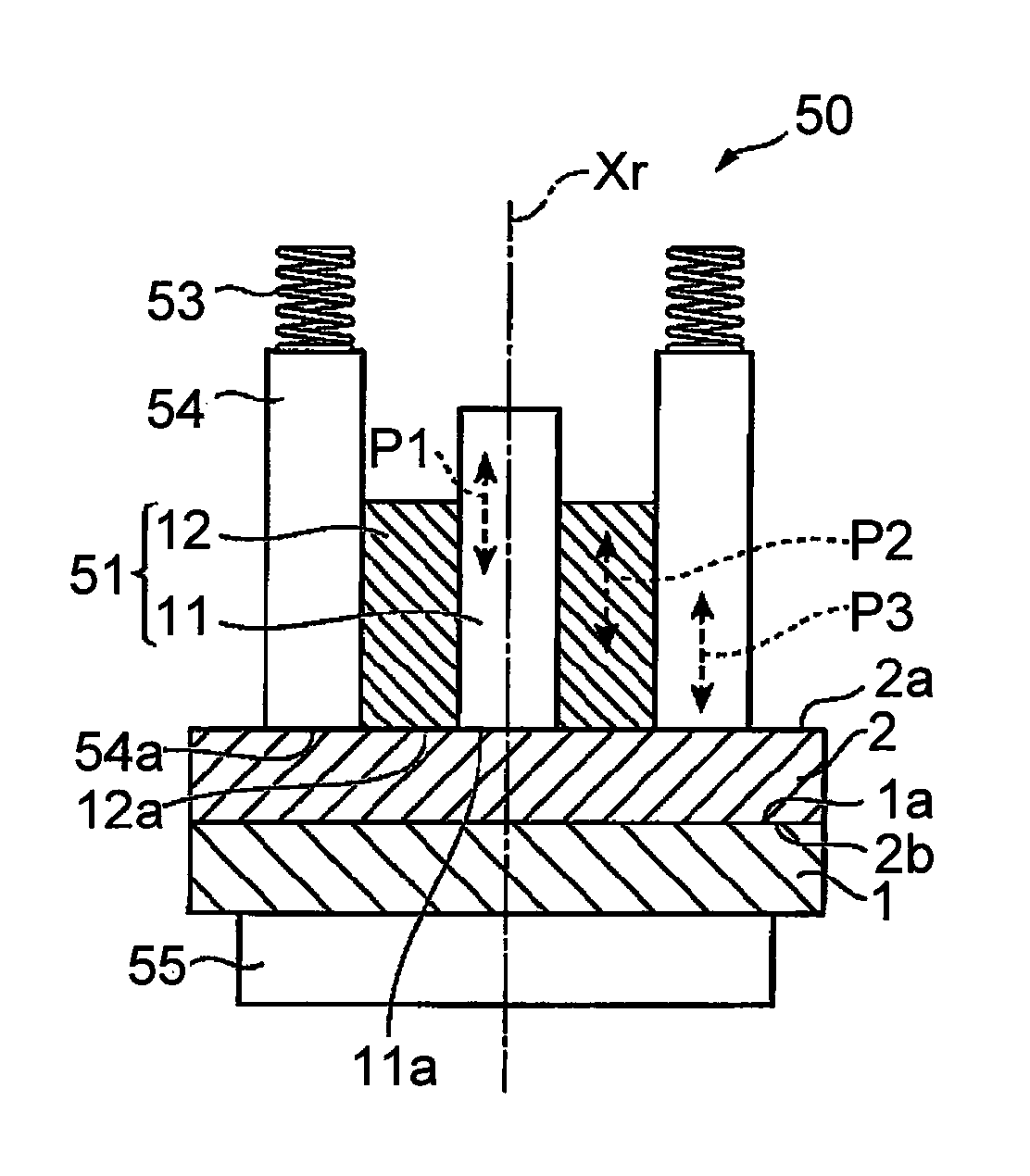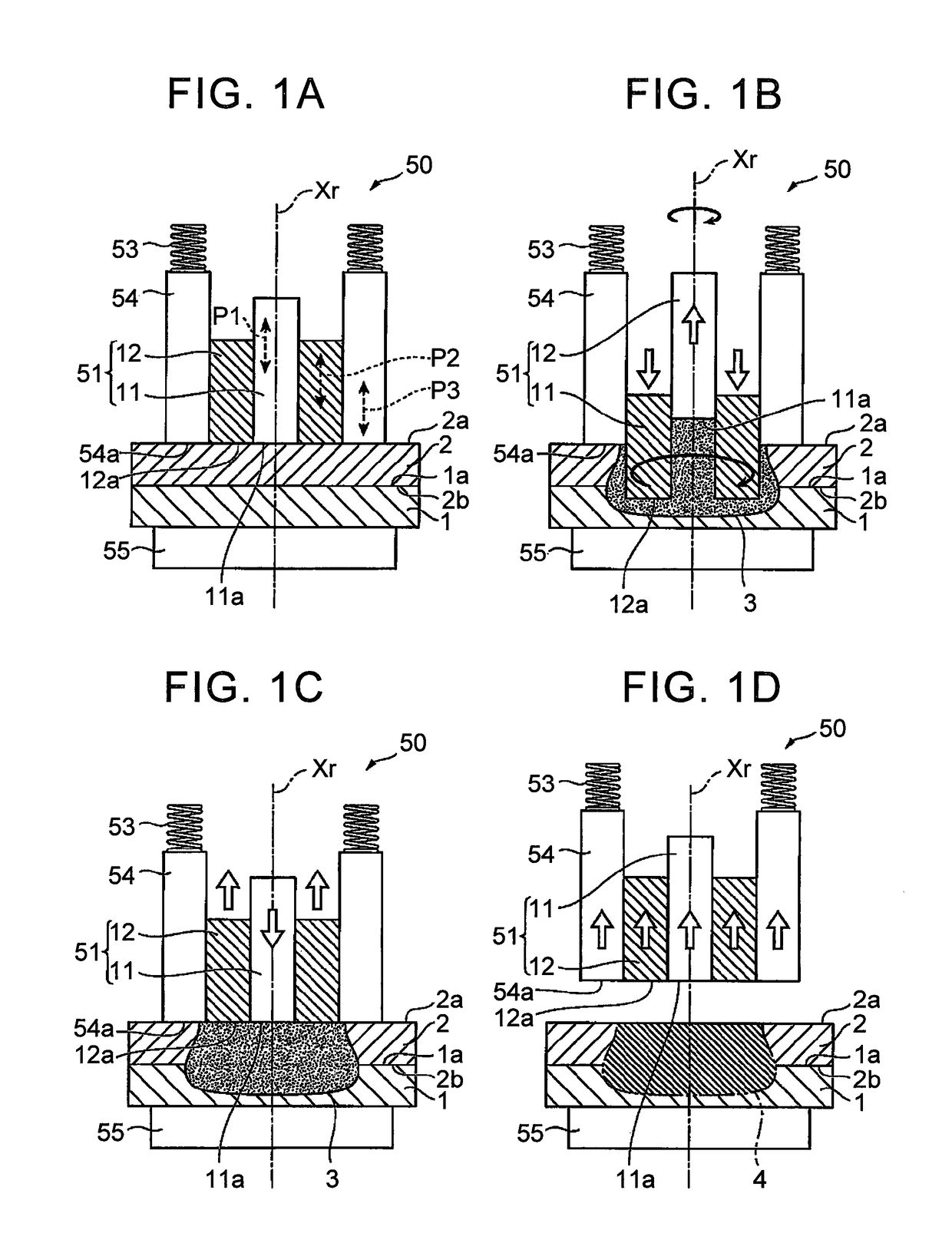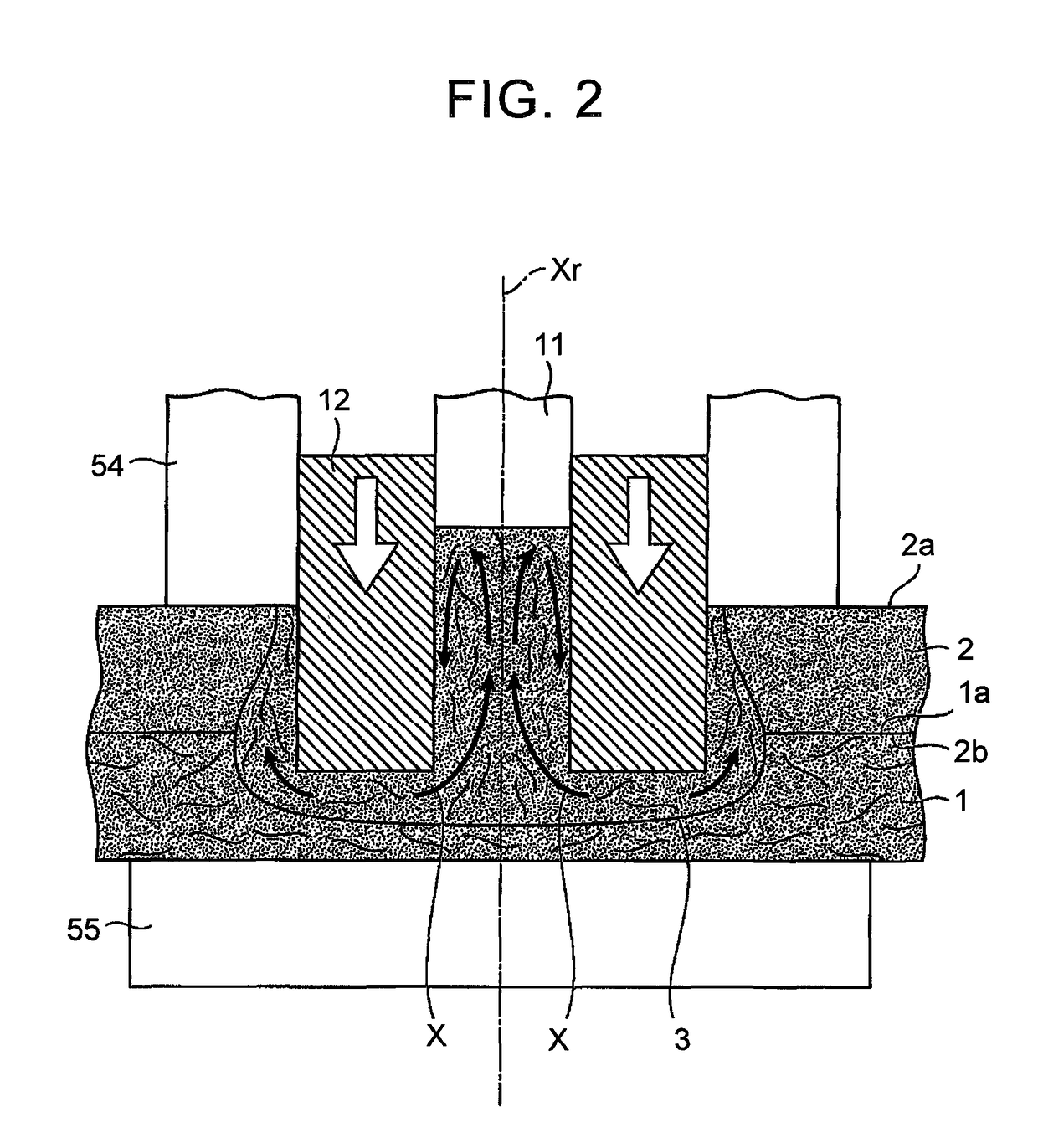Joining method
a jointing method and joint technology, applied in the direction of lamination apparatus, layered products, chemistry apparatus and processes, etc., can solve the problems of insufficient joint strength of the members, burr generation at the joint portion, etc., and achieve the effect of increasing joint strength
- Summary
- Abstract
- Description
- Claims
- Application Information
AI Technical Summary
Benefits of technology
Problems solved by technology
Method used
Image
Examples
Embodiment Construction
[0030]Hereinafter, example embodiments of the joining method of the invention will be described with reference to the accompanying drawings.
[0031]FIG. 1 is a longitudinal view illustrating one example embodiment of the joining method of the invention, with FIG. 1A being a view of an arranging process, FIG. 1B being a view of a push-in process, FIG. 1C being a view of a pullout process, and FIG. 1D being a view of a removal process.
[0032]
[0033]The joining method according to this example embodiment of the invention is carried out using a double action type friction stir welding apparatus as a representative example of the friction stir welding apparatus. Therefore, first the representative example of the double action type Friction Stir Welding (FSW) apparatus used with the joining method according to this example embodiment will be outlined with reference to FIG. 1A.
[0034]As shown in FIG. 1A, the FSW apparatus 50 used with the joining method according to this example embodiment main...
PUM
| Property | Measurement | Unit |
|---|---|---|
| friction | aaaaa | aaaaa |
| pressure | aaaaa | aaaaa |
| stress | aaaaa | aaaaa |
Abstract
Description
Claims
Application Information
 Login to View More
Login to View More - R&D
- Intellectual Property
- Life Sciences
- Materials
- Tech Scout
- Unparalleled Data Quality
- Higher Quality Content
- 60% Fewer Hallucinations
Browse by: Latest US Patents, China's latest patents, Technical Efficacy Thesaurus, Application Domain, Technology Topic, Popular Technical Reports.
© 2025 PatSnap. All rights reserved.Legal|Privacy policy|Modern Slavery Act Transparency Statement|Sitemap|About US| Contact US: help@patsnap.com



